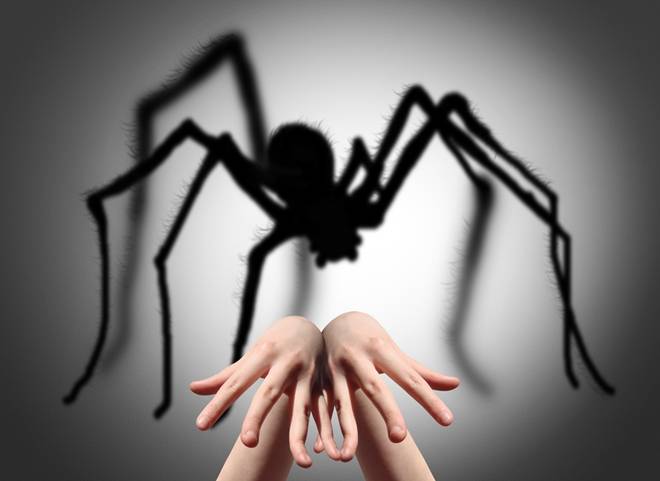What is a phobia?
A phobia is an intense fear of something that, in reality, possesses little or no actual danger. Common phobias and fears include closed-in places, heights, highway driving, flying insects, snakes, and needles. However, we can develop phobias of virtually anything. Most phobias develop in childhood, but they can also develop in adults. If you have a phobia, you probably realize that your fear is unreasonable, yet you still can’t control your feelings. Just thinking about the feared object or situation may make you anxious. And when you’re actually exposed to the thing you fear, the terror is automatic and overwhelming.
The experience is so nerve-wracking that you may go to great lengths to avoid it—inconveniencing yourself or even changing your lifestyle. If you have claustrophobia, for example, you might turn down a lucrative job offer if you have to ride the elevator to get to the office. If you have a fear of heights, you might drive an extra 20 miles in order to avoid a tall bridge. Understanding your phobia is the first step to overcoming it. It’s important to know that phobias are common. (Having a phobia doesn’t mean you’re crazy!) It also helps to know that phobias are highly treatable. You can overcome your anxiety and fear, no matter how out of control it feels.

What Causes Phobias?
Genetic and environmental factors can cause phobias. Children who have a close relative with an anxiety disorder are at risk for developing a phobia. Distressing events such as nearly drowning can bring on a phobia. Exposure to confined spaces, extreme heights, and animal or insect bites can all be sources of phobias. People with ongoing medical conditions or health concerns often have phobias. There is a high incidence of people developing phobias after traumatic brain injuries. Substance abuse and depression are also connected to phobias.
Different Types of Phobias
Agoraphobia
Agoraphobia is a fear of places or situations that you can’t escape from. The word itself refers to “fear of open spaces.” People with agoraphobia fear being in large crowds or trapped outside the home. They often avoid social situations altogether and stay inside their homes.
Many people with agoraphobia fear they may have a panic attack in a place where they can’t escape. Those with chronic health problems may fear they will have a medical emergency in a public area or where no help is available.
Social Phobia
Social phobia is also referred to as “social anxiety disorder.” This is extreme worry about social situations that can lead to self-isolation. A social phobia can be so severe that the simplest interactions, such as ordering at a restaurant or answering the telephone, can cause panic. Those with social phobia will often go out of their way to avoid public situations.
Specific Phobias
Many people dislike certain situations or objects, but to be a true phobia, the fear must interfere with your daily life. Some of the most common include the following.
Glossophobia: Performance anxiety, or the fear of speaking in front of an audience. People with this phobia have severe physical symptoms when they even think about being in front of a group of people.
Acrophobia: The fear of heights. People with this phobia will avoid mountains, bridges, or the higher floors of buildings. Symptoms include vertigo, dizziness, sweating, and feeling as if you’ll pass out or lose consciousness.
Claustrophobia: The fear of enclosed or tight spaces. Severe claustrophobia can be especially disabling if it prevents you from riding in cars or elevators.
Aviatophobia: The fear of flying.
Dentophobia: Fear of the dentist or dental procedures. This phobia generally develops after an unpleasant experience at a dentist’s office. It can be harmful if it prevents you from obtaining needed dental care.
Hemophobia: Fear of blood or injury. A person with hemophobia may faint when they come in contact with their own or another person’s blood.
Arachnophobia: Fear of spiders.
Cynophobia: Fear of dogs.
Ophidiophobia: Fear of snakes.
Nyctophobia: Fear of the nighttime or darkness. This phobia almost always begins as a typical childhood fear. When it progresses past adolescence, it’s considered a phobia.
